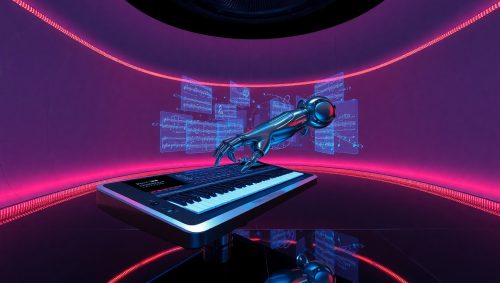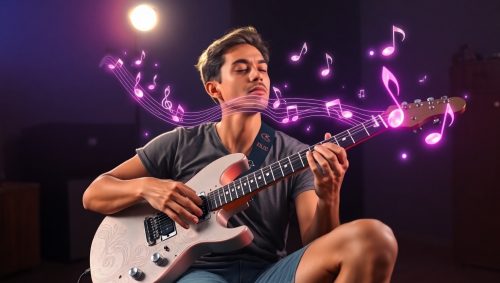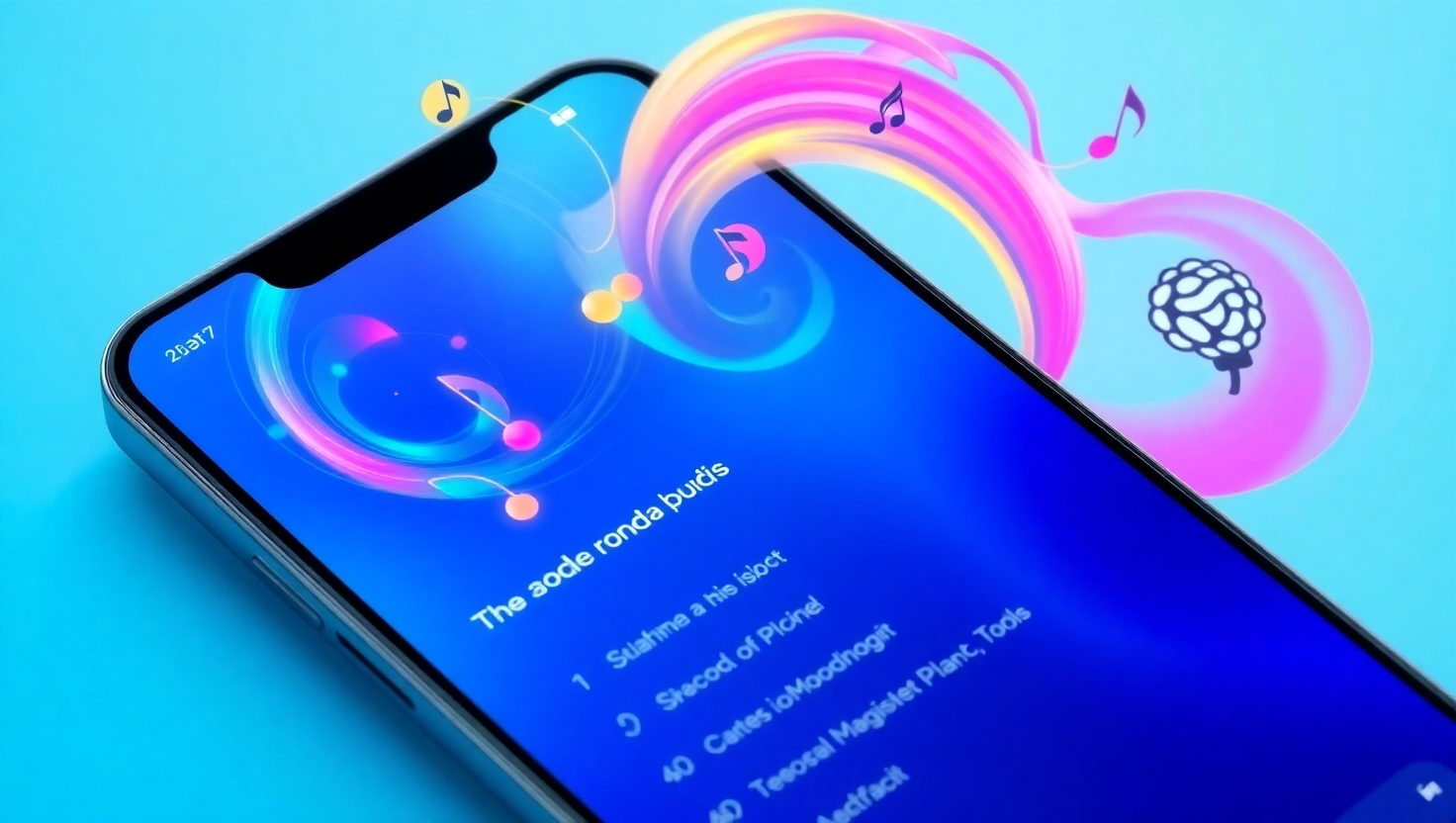The music industry is undergoing a seismic shift, driven by the transformative power of artificial intelligence (AI). From composing symphonies to curating personalized playlists, AI is reshaping how music is created, distributed, and consumed. Whether you’re a budding artist, content creator, or simply a music enthusiast, AI tools are making music production more accessible than ever. In this blog post, we’ll explore the top five AI tools for music generation and delve into how AI is revolutionizing the music industry.
The Role of AI in Music
In today’s digital age, artificial intelligence has become a game-changer across industries, and music is no exception. AI-powered tools are democratizing music creation by enabling users to compose professional-grade tracks without requiring formal training in music theory or production. These tools cater to a wide range of users from hobbyists looking to experiment with sound to professionals seeking to streamline their creative workflows.
The importance of AI in the music industry cannot be overstated. It’s not just about convenience; it’s about innovation. By leveraging machine learning algorithms and neural networks, AI can analyze vast datasets of musical compositions to generate original tracks that are harmonious, genre-specific, and even emotionally evocative. Let’s dive into the top players in this space.
Top 5 AI Tools for Music Generation

1. Mubert
Overview: Mubert stands out as one of the most versatile AI music generators. It allows users to create royalty-free tracks tailored to specific moods, genres, or activities.
Key Features:
- Simple prompt-based track generation.
- Integration with apps and games via its API.
- Monetization opportunities through Mubert Studio.
Best For:
Content creators and developers who need customizable background music for videos, podcasts, or apps.
Why It Stands Out:
Mubert’s Adobe extension ensures seamless integration with other creative tools like Premiere Pro.
2. Soundful
Overview:
Soundful is designed for content creators who want high-quality tracks without the hassle of licensing issues.
Key Features:
- Over 50 templates across genres such as EDM, hip-hop, and ambient.
- Customizable parameters like tempo and key.
- Ability to download individual instrument tracks (STEMs) for further editing.
Best For:
Streamers and podcasters looking for polished soundtracks.
Why It Stands Out:
Its monetization features allow users to distribute their creations on platforms like Spotify and YouTube.
3. AIVA (Artificial Intelligence Virtual Artist)
Overview:
AIVA specializes in creating classical and cinematic compositions using deep learning algorithms.
Key Features:
- Templates for various musical styles.
- Customizable elements like tempo and instrumentation.
- Ownership of copyright for professional plans.
Best For:
Composers working on films, video games, or advertisements.
Why It Stands Out:
AIVA has been recognized as a legitimate composer by SACEM (French Society of Authors, Composers, and Publishers of Music)
4. Beatoven
Overview:
Beatoven simplifies the process of creating unique soundtracks tailored to specific moods or projects.
Key Features:
- Upload videos or podcasts to generate matching soundtracks automatically.
- Granular control over genre, mood, tempo, and instrumentation.
- Stem downloads for advanced editing flexibility.
Best For: Video editors and podcasters seeking personalized audio solutions.
Why It Stands Out: Its video-to-audio generation feature saves time while ensuring high-quality results.
5. Suno AI
Overview:
Suno AI transforms simple text prompts into full-fledged musical compositions across various genres.
Key Features:
- High-quality instrumental tracks with professional-grade audio clarity.
- Integration with Microsoft Copilot for enhanced usability.
- Flexible pricing plans catering to both beginners and professionals.
Best For:
Artists experimenting with text-to-music generation.
Why It Stands Out:
Its partnership with Microsoft Copilot streamlines the creative process.
How AI is Transforming the Music Industry

AI’s impact extends far beyond music generation tools. Here are some key ways it’s reshaping the industry:
1. Democratization of Music Creation
AI tools like Amper Music and Jukedeck enable anyone—regardless of skill level—to compose original tracks. This lowers barriers to entry and fosters creativity among non-musicians.
2. Personalized Listening Experiences
Streaming platforms like Spotify use AI algorithms to analyze user preferences and curate playlists tailored to individual tastes. This enhances listener engagement while helping emerging artists reach new audiences.
3. Enhanced Production Efficiency
AI-powered plugins such as iZotope assist producers in mixing and mastering tracks more efficiently. These tools analyze audio data to suggest optimal settings for EQ, compression, and reverb.
4. Data-Driven Marketing
AI helps record labels identify trends and emerging talents through data analytics. This allows for more targeted marketing campaigns that resonate with specific demographics.
5. Ethical Challenges
While AI offers numerous benefits, it also raises questions about copyright ownership and artistic authenticity. For instance, who owns an AI-composed track—the user or the algorithm? These issues necessitate updated legal frameworks.
Emerging Trends in AI Music Technology
As AI technology continues to evolve, several trends are shaping the future of music creation and consumption:
- Adaptive Music: AI can create music that adapts in real-time to user interactions. For example, video games can utilize AI-generated soundtracks that change based on player actions, enhancing immersion.
- Collaborative AI: Tools are being developed that allow human musicians to collaborate with AI systems in real-time. This synergy can lead to innovative compositions that blend human creativity with machine efficiency.
- AI-Enhanced Live Performances: Artists are beginning to incorporate AI into live performances, using algorithms to generate visuals or modify soundscapes dynamically during shows.
Challenges and Limitations of AI in Music
1. Creative Limitations
While AI can generate impressive compositions, it often lacks the emotional depth and nuance that human musicians bring to their work. Many argue that true artistry involves personal experiences and emotions that machines cannot replicate.
2. Copyright Issues
The question of ownership over AI-generated music remains contentious. As mentioned earlier, legal frameworks have yet to catch up with technological advancements, leading to potential disputes over intellectual property rights.
3. Market Saturation
With the rise of accessible music generation tools, there’s a risk of market saturation where unique sounds become harder to find. This could lead to a homogenization of music styles as more creators rely on similar algorithms.
How Musicians Can Adapt to the Changing Landscape
1. Embrace Collaboration with AI
Musicians should view AI as a collaborator rather than a competitor. By integrating AI tools into their workflows, artists can enhance their creativity and streamline the production process.
2. Stay Informed About Technology
Keeping up with advancements in AI technology is crucial for musicians looking to stay relevant in the industry. Regularly exploring new tools and platforms will help artists leverage the latest innovations.
3. Focus on Unique Branding
As more creators enter the space using similar tools, developing a unique brand identity becomes essential. Musicians should focus on what sets them apart—be it their style, storytelling ability, or performance skills—to maintain a competitive edge.
Actionable Takeaways
If you’re intrigued by the possibilities of AI in music creation, here are some steps you can take:
- Explore free versions of tools like Mubert or Suno AI to experiment with basic features before committing to paid plans.
- Use platforms like Beatoven or Soundful to create royalty-free soundtracks for your videos or podcasts without worrying about licensing issues.
- Stay informed about copyright laws related to AI-generated content if you plan to monetize your creations.
Conclusion
AI is not just a tool; it’s a revolution in the making within the music industry. From empowering creators with innovative tools like Mubert and AIVA to transforming how listeners discover new music through personalized algorithms, its impact is profound.
As we move forward, striking a balance between technological innovation and ethical considerations will be crucial. Whether you’re an aspiring musician or an established producer, now is the time to embrace AI’s potential in shaping the future of music.
FAQs
1. Can I monetize music created using AI tools?
Yes! Many platforms like Soundful allow users to monetize their creations on streaming services such as Spotify and YouTube.
2. Are AI-generated tracks royalty-free?
Most tools offer royalty-free options; however, it’s essential to check individual licensing terms.
3. Do I need prior musical knowledge to use these tools?
No! Most AI music generators are designed with user-friendly interfaces that cater even to beginners.
4. How does AI personalize playlists on streaming platforms?
AI analyzes listening habits, preferences, and user behavior data to curate playlists tailored specifically for each listener.
5. What are some ethical concerns surrounding AI in music?
Key concerns include copyright ownership of AI-generated tracks and potential loss of human creativity in composition.

